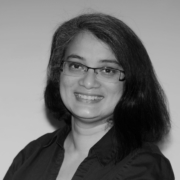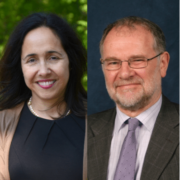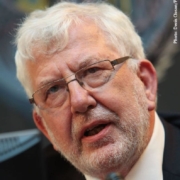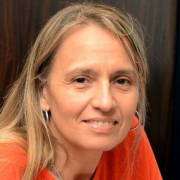Alison Milner and Ezequiel Gómez Caride
Educational Assessment and Inclusive Education
Today we explore the interconnections between Educational Assessment and Inclusive Education. My guests are Alison Milner and Ezequiel Gómez Caride.
Alison Milner is an assistant professor in the Centre for Education Policy Research of the Department for Culture and Learning at Aalborg University in Denmark. Ezequiel Gómez Caride is an assistant professor at the School of Education at the University of San Andrés in Argentina. Together with Christian Ydesen, Tali Aderet-German and Youjin Ruan, they’ve recently co-written the book Educational Assessment and Inclusive Education: Paradoxes, Perspectives and Potentialities.
Citation: Milner, Alison, Caride, Ezequiel Gómez, interview with Will Brehm, FreshEd, 320, podcast audio, May 8, 2023.https://freshedpodcast.com/milner-caride/
Will Brehm 0:00
Alison Milner and Ezequiel Gomez Caride, welcome to FreshEd.
Alison Milner 1:24
Hello.
Ezequiel Gómez Caride 1:25
Thank you very much. Nice to be here.
Will Brehm 1:27
Congratulations on your new book, really quite a nice contribution with so many really great authors. I want to just jump right into some of the content. You bring in this book together sort of the assessment agenda and the inclusion agenda, and then think through what these different agendas mean across many different countries. So, I guess to start, how would you even begin to describe what the assessment agenda is in education?
Alison Milner 1:50
Having written the book now and having analyzed the data, you could actually say that there are multiple assessment agendas. Then this is actually one of the most interesting aspects about doing a comparative study, is seeing how these agendas have moved over time and space. And I think that’s something that Felicitas Acosta refers to in her forward is this notion of “as it moves, it morphs” essentially. So, for example, if you’re coming from England, you might set the assessment agenda within a much wider standards agenda that actually you could say started even previous to this more global agenda that is now seen through the International large-scale assessments such as PISA. You could trace this back to Margaret Thatcher and the 1988 education reformat. The political need for comparable data at the national level to ensure standards are maintained in schools and to ensure that England or the United Kingdom was competitive in a bigger global economy. So, assessment became very important at that period. But assessment actually, historically, has been quite significant in England even before the advent of neoliberalism. We had IQ testing, we had the 11 Plus, which in a very class-based system created the conditions for a kind of tripartite system of schooling of secondary modern, grammar, and technical schools. So, assessment has always both been very much a national concern, even before it became something that you could say has become quite global in its reach. Although maybe in Argentina you have a different perspective on that Ezequiel.
Ezequiel Gómez Caride 3:28
Yes, yes. And it’s very interesting because we are on the opposite side to some extent. The accountability agenda is here perceived as foreign agenda coming from the World Bank and coming from outside. We see here, in Argentina, a lot of resistance to this agenda. And one of the reasons I believe is a cultural one. Here actually at this stage, we are a country of immigrants, and the notion of equality is really strong in Argentina, and in politics. And the accountability and the assessment agenda to some extent, tends to classify people. And that classification here makes a lot of noise. It’s very uncomfortable for people. So, during the field work, we found a lot of resistance at schools in principals, and what they perceive as a global and not a local agenda.
Will Brehm 4:13
And so, in Argentina, how did it move and morph into that context?
Ezequiel Gómez Caride 4:18
Interesting. We have standardized assessments but if we have to track historically, they are very discontinuous, and they are not high stakes, as they’re called. We don’t have examinations when you leave the high school here, or you don’t have examinations to get into the university. So, these exams are not kind of changing the lives of the students or the teachers and principals. So, somehow, they are not shaping the educational realm as in other countries, as in England, for instance.
Will Brehm 4:46
Interesting. And yet still, the language and the discourse is there. But whereas Allison, in England, this sort of assessment and standards sort of agenda are shaping students and are shaping teachers?
Alison Milner 4:58
I think it’s very much used in contrast to Argentina as much more of a part of a social mobility agenda if you want to see that intersection with inclusion. You know, success in education as seen through examinations is your route to your role in society, your role in a labor market, your potential to overcome the disadvantages of your past and of birth as Michael Gove might have said earlier on in the early 2010’s. But yes, that has been of course challenged because obviously, very few people do actually attain that kind of level of social mobility. The class structure, although maybe class consciousness is not necessarily something that is felt so much these days, and it’s often played down. There’s definitely very much still a class structure in which education is built and developed. And it does impact what examinations you take, the extent of your attainments within examinations can be reflected as a result of your socioeconomic background because all of these other resources you can draw on in your education that aren’t actually present in school can have an impact on your performance in a performative test. So, yes, I think this is something that actually we talked a lot about in our concluding comments, actually, to the book. This notion of how assessment and inclusion are recontextualized in our contexts, and what are the main kind of influences there and class; and the socioeconomic environment of England has a huge impact on that. Whether that be neoliberalism, or more recent, austerity policies, which have had an impact on child poverty levels and attainment levels at school.
Will Brehm 6:45
So, it’s sort of like this notion of in England, what you’re sort of saying is that as long as there’s equal opportunity to get into schools, and the standards are sort of shared across the system, then it’s really up to the student’s own ability to achieve well on a test and then sort of progress further along in their education and that sort of quote, unquote, perfect meritocracy. But of course, what you’re saying, Alison, is that a lot of this misses some of these class dimensions, and that the standards don’t sort of create this, you know, beautiful world of meritocracy as someone like Michael Gove. Now, Ezequiel, what about in Argentina? How does this notion of inclusion and notions of fairness and social justice fit into this discourse of assessment, even if it is sort of being resisted, I guess, in a way in Argentina?
Ezequiel Gómez Caride 7:36
interestingly, what we found in the book is that these agendas are tied together. And as I said, in Argentina, the assessment agenda is being resisted. With the inclusion agenda, we have a different scenario. Everyone embraced the inclusion agenda in Argentina. And we are pretty good in the schools, including all the students. And actually, during the COVID pandemic-of course, it was disaster-a lot of programs used to go to the students houses to find students. So, we have a cultural mandate that everyone has to be at the school no matter what, and that’s something that all the teachers and all the principals in Argentina has believed that mandate. It’s very strong-the inclusion dimension. No matter background, gender, ethnicity, religion, or whatever. So, of course, with the resources of the Argentine educational system and schools, but no one questioned this inclusion agenda here.
Will Brehm 8:35
And does the assessment agenda impact the inclusion?
Ezequiel Gómez Caride 8:40
Yes. Let me give you an example. For instance, in a school, I had an interview with a principal that told me that during this national standardized assessment, the Aprender learning evaluation, the students somehow decided to strike out-not to take the test. And the principal supported them, saying, “This is a very good example of civic engagement and how people voice the student voices”. So, it was very interesting, to some extent, to see how the principal endorsed and supported this position of the students not taking the test. And that was something very natural for them. It was not a huge thing because they perceive these examinations, or this assessment, as something that is not from the local communities. It’s not for the schools, it’s something for the politicians or for the World Bank or for they don’t know who.
Alison Milner 9:31
I think that’s the same in England also. I think, also there is this feeling amongst school actors, so head teachers and teachers that this is an agenda for somebody else, really. It’s to compare schools, it’s not necessarily about the kids and their educational attainment. But at the same time, there’s less of a capacity to be able to resist within the English system because of the accountability system, which was again, one of the key intersections for assessment and inclusion and that feeling that during COVID-19, we also had experienced some quite interesting changes to the assessment and accountability system in England. But actually, what came through our teacher interviews was how complex it was, and how actually the kind of shift to teachers’ judgment, that sudden shift, actually caused many problems for teachers. And there was that notion of teacher bias that came through a lot in media conversations in Education Select Committees conversations, and how could that be somehow prevented? And teachers were really worried about how this would reflect on them, how their judgment was basically being made the crux of the accountability system at that point. And also, what’s really interesting is when we talk to people at Ofqual, how they say, ultimately, we have this assessment system-and you might disagree what they say on this, but-because it’s based on the education system we have. If we have a different education system, we could possibly have a different assessment system. But within a market system, where schools are doing very different things, or they have a national curriculum. But if there’s a need to kind of compare, this is the way you do it through assessment. Maybe in a less marketized culture, you could have much more modular portfolio types of assessment, much more teachers’ judgments, but I’ve experienced the system in Sweden and if you have a highly marketized system and assessments, which are based on teacher judgment, then you get accused of grade inflation. And there’s other issues with lack of moderation. So, the assessment system, in some ways actually is designed for better or worse for the school system that we’re currently experiencing. But the problem with that then is, of course, the high stakes accountability attached to it. And as we’re seeing now in England, the pernicious effects of accountability on the key actors within the system. So, the head teachers, predominantly here. We see through the tragic suicide of Ruth Perry. But also, on teachers as well who are leading the system, basically, because this is how assessment has been used to hold schools to account.
Will Brehm 12:11
It’s quite interesting that these agendas that might be deriving from sort of certain global actors, might be valuable and being prioritized by politicians, for whatever reason, truly do impact the teachers. It shapes them, it shapes how they see the world, it impacts them physically and mentally, emotionally. And so, it has these huge agendas. Even in the case of Argentina, as Ezequiel was sort of saying where it’s being resisted, that is still shaping the way in which teachers perform and act and behave in this world. In your book, you talk about how these agendas, when they come together, they sometimes have to create these quote unquote, inclusion heroes. What did you mean by an inclusion hero? How can we understand this? How does that impact teachers themselves?
Ezequiel Gómez Caride 12:55
What we found in the interviews was that these recent agendas place significant demands on teachers-the inclusion agenda. We saw in all cases that teachers acknowledged that they had not been prepared for these changes. We had a lot of quotes, somehow saying, okay, the government changed the policy. Now we have to include more children. That’s fine. We agree with that. But we have not been prepared for this. And this is the mantra that we found in other countries, I would say. And these facts lead us to teacher training. How these teachers were prepared, and how these teachers were trained, and how they should be trained in the future.
Alison Milner 13:34
Yeah, and I think it’s also not just a matter of initial teacher training, is it? It’s also continuing professional development because what we’re seeing over time as well is the nature of the student is changing. The students who are being included has changed, student’s needs, interests, diversities are changing over time. So, how can teachers respond to this effectively, and there is a need to kind of think much more in the terms of kind of a lifelong learning journey for the teacher of how they can actually deal with these changes in society. But also, this is all being done within a context where funding is cut. We’re in a cost-of-living crisis in many countries, school budgets have been cut for over 10 years in England already. And the resources for special educational needs as one group of students with these needs is particularly hardest hit. So, in terms of their achievement within the system-whether that be through a formal assessment, or not-is hampered. We’ve got all these changes going on and demands of the global agendas for achievement, or equity and excellence, which you could say kind of mirrors the whole assessment and inclusion agendas in some ways slightly. But where are the resources for this? Where are the financial resources, and where are the human resources to schools?
Ezequiel Gómez Caride 14:51
I agree. Teachers were receptive to the inclusion challenges that they faced however, they constantly repeated the lack of time as the main issue, a crucial one, that impedes these inclusive practices. For instance, I remember an English teacher says, if teachers had more time, if we had kind of an extra 10%, something like that. Because they pose the teachers in a dilemma because they can’t some support and agree this inclusive practice and this inclusion for all but at the same time, the structure is the same. They don’t have an extra time. They have a new agenda with new challenges and somehow, they’re not being prepared for this. But they don’t have neither the time to make the differentiated instruction, or planning, or one for one instruction. So, they are somehow trapped in between this dilemma.
Alison Milner 15:40
Yeah, and time is a resource in itself, isn’t it? I think something as well that came from the Danish data; one head teacher talked about the importance of stopping the clocks, essentially. And essentially taking staff off timetable for an afternoon once a week, once a fortnight so they could actually sit together and collaborate around ideas or issues they were having to propose solutions within the classroom, or to come up with new ways of approaching a certain student or a class. And I thought that was really interesting, that notion of just stopping time for a while, and allowing teachers and the head teacher to breathe, and just be able to work with the children instead of working with an agenda. That’s really important. Having been a teacher myself, I do know the importance of time and how hard pressed it is.
Will Brehm 16:30
These challenges seem quite enormous. Time issues, funding issues. Saying we want to be prepared, we want more training, we want all of this extra support, but yet not necessarily receiving it. But then being constantly told to be this inclusion hero, include everybody, make sure you have all these amazing practices for all these diverse types of students in your classroom, potentially. You can see how this is a serious dilemma. In the research, what do teachers do? How do they end up solving this problem where on the one hand, they’re told you must be an inclusion hero. But on the other hand, we’re not going to give you any extra money to have the resources to do it, we’re not going to give you more training, we’re also not going to give you necessarily more time to be able to do all of this. So, in the end, the teachers are sort of stuck between a rock and a hard place. What do they do? How do they navigate that?
Ezequiel Gómez Caride 17:17
That’s a very interesting question. At least in Denmark, and in Argentina, we found out that collaborative pedagogical practices were described as the crucial element to somehow deal with this inclusive agenda. Professional collaboration, teamwork, were considered the key to deal with these challenges of inclusion.
Alison Milner 17:38
I think also is that notion of community. And not only the community within the school-so, the teachers and the head teachers and the students together-but also the involvement of parents in these issues at school level and seeing community as much broader than the school site. And we didn’t actually interview parents or students, but they were very much present in our data. And I think the next step would be to raise the voices of students and parents in any kind of research, especially research that could lead towards policy recommendations on inclusion and assessment.
Ezequiel Gómez Caride 18:16
Yes, well, we found, as Alison said, when the values and the vision of the community in the broader sense of community is aligned, everything is easier for students, for teachers, for parents.
Alison Milner 18:27
And what was interesting in Argentina was something your data showed, as well, Ezequiel was on that notion of how they involve the community in assessment during the pandemic.
Ezequiel Gómez Caride 18:37
Yes. One school that we were making interviews with, somehow one activity, or one project was to make more gardens within the student houses. And somehow it was also a nutrition kind of natural science, physical science. And actually, during the pandemic, the health, the nutrition, and food was an issue, and it was a way that the principal and school was able to reach the houses and show we still are here through this project.
Alison Milner 19:04
And we’re learning through it as well; we’re learning. And we can assess your knowledge through this project, and your mom and dad can be involved, and your sisters and brothers can be involved. I thought that was really something quite unique to the Argentinian context.
Will Brehm 19:16
Maybe looking at some of the other contexts about some of these assessments and the pressure that might put on teachers, I’m sure some of the pressure from assessment can get pretty difficult to hope that your students ended up scoring well on these assessments to reach the standards that the school gets ranked. So, how did teachers sort of understand some of these pressures from the assessment agenda in these different contexts?
Ezequiel Gómez Caride 19:39
What we found is that teachers perceived these tensions between some of these pedagogical tasks. One of which was related to externally mandated assessed and standardized tests and the other to teachers’ possibilities to assess formatively. Some teachers would share with us that this rise of data and the current data kind of movement somehow had led teachers to reflect nostalgically about the past. In the past, parents used to trust in our professional judgment. Now they see the league table, or now they see the results of the standardized assessment. So, somehow, they felt that these assessments somehow took them some authority that is not a nice feeling for their professional self-esteem.
Alison Milner 20:22
What’s really interesting is the word assessment and how very much at the start of this conversation even we focus very much on standardized tests, national standardized tests and international large-scale assessments. And actually, assessment is a much broader concept. And teachers know that. Teachers are trained to understand that assessment goes on before your students even enter the classroom, you’re already assessing their learning needs. And it’s that notion that assessment is much broader, but what the data, what the accountability tends to focus on is very much the summative standardized assessment and the grades, and what that means in terms of maybe progress or in terms of prognosis, future performance. I think that’s also an issue for the teacher training, the teacher education is that notion of how to negotiate these tensions but also the fact that we need to lift teachers’ capacities and confidence in their own professional judgment as assessors as much as they are inclusive professionals as well. They’re both two areas where there needs to be a greater focus on their capacities and what they can contribute to children’s development.
Will Brehm 21:32
Whenever I hear the word assessment, I think of examinations and tests, and like my heart rate goes up a little bit. I get very, very nervous. I was always a terrible test taker.
Alison Milner 21:42
Well, that’s it, isn’t it? I mean, not everybody is good at taking tests, and they can show their learning in many different ways. I think another thing that came through quite interestingly in the data was this notion of dialogue, and how teachers can assess students much more qualitatively, and have conversations with them about their progress. And, you know, write qualitative texts on where they see their progress and where they’re going. It doesn’t have to be about a grade, it doesn’t have to be such a label as something which distinguishes one person from another. And also, I mean, the issue with grading obviously, as well is a grade D for one child can be a feeling of failure but for another child, it can show they’ve exceeded their own expectations, their own self-belief through getting a grade D. But then why does society, industry, higher education put a different value on that grade D, which has an impact, then, on that child’s own self confidence of feeling that that D was worth something. It’s a very complex situation to be in, isn’t it? Because assessment does allow for, again, for better or for worse, the identification of inverted commas, talents. But its talent based on a certain type of knowledge that is considered important for a certain context. And there are many talents that students have that are not assessed. And this is one of the challenges teachers have, then, is knowing that they’re putting their students through these assessments but actually, their students are also showing other capabilities, skills that will never get acknowledged in a certificate or a grade.
Ezequiel Gómez Caride 23:22
Adding to Alison’s comments, something that, for me, is truly interesting is how teachers, we call in the book metamorphosed this assessment kind of emphasis. They say, well, we don’t agree with this test, with this standardized kind of craziness. However, it’s a way to instill values on students of hard work, perseverance, and grit. Some of them, they say, well, we don’t agree with this craziness about assessment but it’s a way that students will learn these other skills. So, interestingly, these assessments are not anymore a screenshot of academic progress but are being used for other purposes in the classroom; for teaching, grit, resilience, building student personal traits to prepare them for the real-life challenges. So, it’s interesting how this translation of this mandate of assessment is being enacted in the classrooms.
Will Brehm 24:14
It just seems like what you’re beginning to explore here is really how these different agendas of assessment and inclusion, that they can sort of compete with each other, right? They can create these dilemmas for the teachers that are almost impossible to resolve on the one hand. But then maybe, as Ezequiel is just saying, is that potentially there’s ways of sort of teaching these other skills through these assessments that can actually be quite valuable for students and potentially further the inclusion agenda, right? I mean, it just seems like these two agendas that teachers are sort of being forced into and they’re changing their practices; sometimes it ends up being contradictory.
Alison Milner 24:47
I think all teachers, certainly within our study, felt that assessment was important and it’s part of teaching. It complements teaching, doesn’t it? How can you know what to teach your students next if you don’t know what they already know? It was never a case that any of the teachers felt it was irrelevant in any way. I think the issue is how these assessments are used within accountability structures, how the data is used, who has access to the data, how public this data is made. I mean, in an Israel case, the Ministry of Education was actually very much against the publication of test results in the national standardized tests because they were concerned about how high stakes it will become as a result of that. But it was actually pressure from Freedom of Information movements and parents, that led to this policy being implemented at the publication of data. They had pressured, it went to the High Court, and as a result of that, the Ministry of Education had to set up a website which produced their results. And now these data are then used by the media and put into league tables by the media, and they can also, then, have an impact on house prices in the area. So, you know, sometimes these forces are not necessarily coming from the state themselves, they’re coming from other actors, and parents want to know how their children are doing as much as teachers do sometimes. But again, it’s how this data is then used by, for example, the media and you know, estate agents, which then kind of distorts the kind of reality a little bit and takes it away from actually what is this really about? It’s about children’s learning, at the end of the day, it shouldn’t be about how much the house costs down the road. And this then causes wider social segregation, so it has then an impact on inclusion. If you have urban segregation that has a knock-on effect on who goes to the local schools. So, it’s very complex, and very interwoven. And not just necessarily assessment inclusion kind of intersection, there are multiple intersections with multiple agendas going on simultaneously here at which these two agendas just play some roles really.
Ezequiel Gómez Caride 26:56
Yes. We have an example of China. There were examinations have a long tradition, centuries actually, are understood as a state kind of conclusive technology since they foster educational opportunities for rural students-these massive examinations. So, I don’t know why but we tend to, at least at the beginning of our project, we tend to pose these agendas as opposite agendas. And after the research, I would say that they are not opposite. It’s much more complex. And I will say that both agendas are growing. The inclusive agenda and the assessment. In different ways, of course with different contexts. But it’s not just a competition, both agendas are growing and getting stronger in the educational space.
Alison Milner 27:40
Although the assessment agenda does tend to kind of take precedence, I would say, and something that Christian has drawn attention to a lot, our principal investigator, is this notion that inclusion is often seen as a kind of fluffy concept, particularly in the kind of post Salamanca statement era where inclusion kind of became a much more holistic kind of concept that wasn’t simply just about the inclusion of special children with special educational needs and disabilities in schools, it became much more about diversities and different types of diversities, and how do we address everybody’s needs in this wonderful kind of school community vision. But at the same time, what does that actually mean in concrete terms? And how is that enacted at local level? It can be interpreted very differently from school to school. In one context, you would have teachers and head teachers with different visions of what that inclusion agenda means. And they had different policies and practices and procedures going on at school level. Even though there’s a national policy, a code of conduct for how this should be done at local level, there is some agency there in how its interpreted according to students’ needs. But what does that mean, then, in terms of equal access, and equal access to quality education at the local level? Does inclusion mean exclusion? Does that mean you take students out of the classroom and then bring them back as soon as they are able to? Does that mean having a bespoke timetable for them? And obviously, there are pros and cons with all these kinds of interventions we’re seeing at local level. So, you can’t really say there’s a one size fits all for it. But it does have a kind of impact on what we understand as inclusion, then, because it has just very different meanings for very different people.
Ezequiel Gómez Caride 29:22
I was thinking that, to some extent, the assessment agenda, through the standardized and long scale assessments had this technology that is very powerful, kind of driving the educational agenda. I was thinking about how the inclusive agenda, which ways or which technologies would somehow push to the next step this global agenda. So, I think that that’s a good kind of topic to think of.
Will Brehm 29:45
It’s such a fascinating sort of insight. Lots of, like you said, new questions to raise going forward. But also, to see these two agendas not in competition, but having these sorts of complex relationships that really begin to change the way teachers and as you said, potentially how students and other actors live in the world. So, really fascinating research. Congratulations on your new book. Alison Milner, Ezequiel Gomez Caride, thank you so much for joining FreshEd, really a pleasure to talk today.
Ezequiel Gómez Caride 30:13
Thank you very much.
Alison Milner 30:14
Thank you.
Want to help translate this show? Please contact info@freshedpodcast.com
Related Author Publications/Projects
Educational assessment and inclusive education: Paradoxes, perspectives, and Potentialities
Inclusion in testing times: Implications for citizenship and participation
State interventions and school accountabilities during the COVID-19 pandemic
Teachers’ work at the sharp end of neoliberal education reform
Inclusion: The Cinderella concept in educational policy in Latin America
A comparative analysis of educational national laws of Argentina, Uruguay, and Chile
Mentioned Resources
Education Reform Act of 1988 in England
Margaret Thatcher’s UK school reforms-aims, impact, legacy
The “eleven-plus” battle in education in England
Related Resources
IQ: The rank ordering of the world
Defining inclusion in popular and intercultural education in Argentina and Peru
The long and winding road to inclusion: Educational policies in Argentina (2003-2015)
Education policies in Argentina
Immigration and educational inclusion: Evidence from three schools in Buenos Aires
Comparing inclusive education in Turkey and Argentina
Inclusive education: Why it poses a dilemma to some teachers
Dimensions of inclusion in education
Building capacity for inclusive teaching
Have any useful resources related to this show? Please send them to info@freshedpodcast.com









